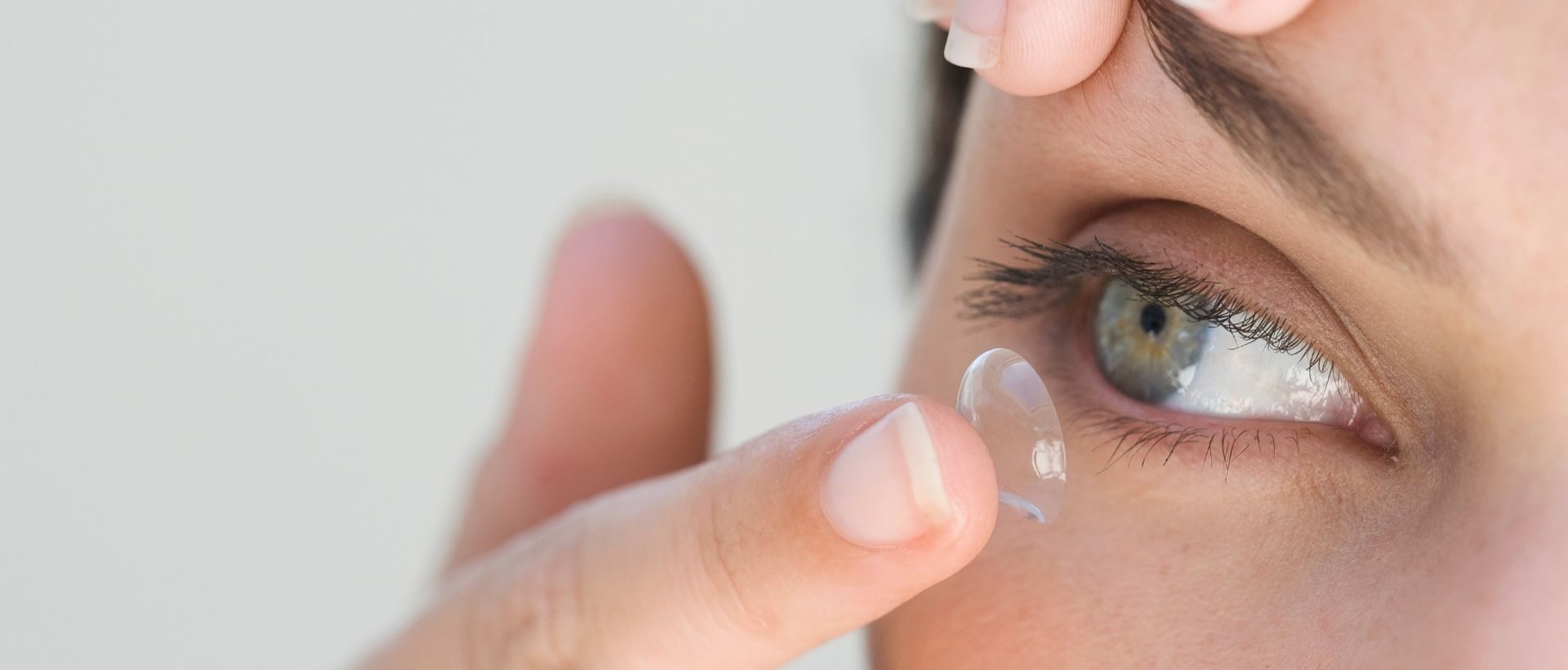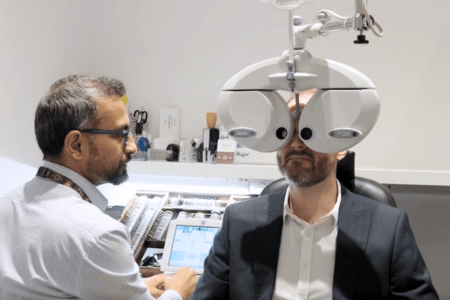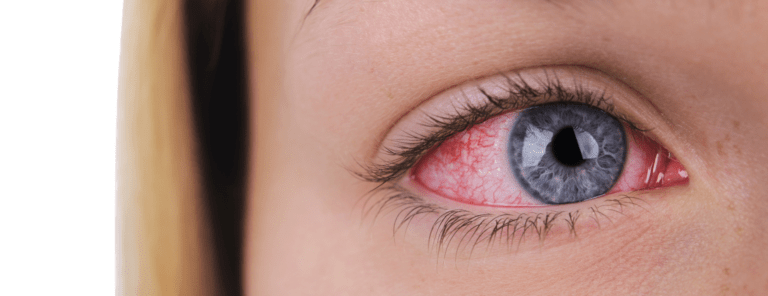
Eye infections can be caused by bacteria, viruses, or fungi and affect any part of your eye. See your eye doctor immediately if you suspect one. Self-diagnosis and treatment can worsen the problem and potentially harm your vision.
Contact Lenses and Increased Risk: Contact lens wearers are more susceptible to infections if not properly cared for. Untreated infections can lead to serious complications like corneal scarring, vision loss, and even corneal transplants. Even minor infections are painful and disruptive, requiring frequent doctor visits and medication. Many infections could be prevented by proper hygiene practices, like avoiding sleeping in lenses and not wearing them for longer than recommended.
COMMON TYPES OF EYE INFECTION
- Conjunctivitis, also known as “pink-eye”, is highly contagious, especially between children.
- A stye is a bump on the eyelid when bacteria from your skin get into the hair follicle of an eyelash.
- Acanthamoeba keratitis is a potentially blinding infection of the cornea. Contact lens wearers are at risk and need to adhere carefully to a strict lens hygiene routine. Using tap water instead of contact lens solution is an important possible risk factor.
- Endophthalmitis is a severe eye infection with inflammation. This occurs when an eye infection penetrates the eye’s interior, and blindness could result without immediate treatment. This type of infection can occur from trauma or injury penetrating the eye, or as a rare complication of eye surgery, such as cataract surgery.
SYMPTOMS OF EYE INFECTION
- Redness, swelling and itching
- Discharge, or watery or dry eyes
- Light sensitivity
- Pain
- Problems with vision
EYE INFECTION TREATMENTS
Fortunately, most common bacterial eye infections clear up quickly with prompt treatment, such as with prescription antibiotic eye drops or ointments and compresses.
Many common viral eye infections resolve on their own. However, in severe cases, viral eye infections may require antiviral eye drops to be prescribed; careful administration of steroid eye drops may also be needed to reduce inflammation and more serious damage to the eye.
TOP TIPS FOR CONTACT LENS CARE
- The most important: One shouldn’t overwear contact lenses.
- Do not sleep in contact lenses without first discussing this with your optometrist. Sleeping in contact lenses increases the chance of contact lens-related eye infections by 6 to 8 times.
- Always use fresh contact lens solution. Adding new solution to the old solution already in your contact lens case can lower its ability to kill germs.
- Replace your contact lenses as often as recommended by your optometrist. People who do not replace their lenses as often as recommended have more complications and more eye problems than those who follow replacement recommendations carefully.
- See your optometrist for a check-up as often as they advise. During these contact lens appointments, your optometrist will not only assess the general health of your eye, but it is also a good opportunity to discuss any issues or concerns you may have regarding your contact lenses. Remember, there are several different options available, and it is important to find the right kind based on your individual needs.
If your eyes hurt, look red or you do not see clearly, remove your contact lenses and do not use them again. Make an appointment with your optician so they can investigate the cause and recommend appropriate treatment. Seek urgent care if you see flashes, floaters, zig zag lines, Aura’s or have double vision.
HOW TO PREVENT EYE INFECTIONS
- Always wash your hands before touching your eyes or eyelids and before handling contact lenses
- If you are near a person with a red eye, avoid contact around your own eye until you have first washed your hands
- Use hand sanitisers liberally in public areas such as day care centres and classrooms
- If you are a contact lens wearer, stop wearing your lenses, and try only to wear your glasses until you have seen your optometrist for diagnosis and treatment
- Remember that sleeping while wearing contact lenses, even if you wear new “breathable” lenses that have been approved for overnight wear, significantly increases your risk of eye infection
- At home, if any family members have a red eye or a confirmed eye infection, encourage regular hand washing among the entire household, keep their bedding and towels clean, and don’t let them share these items with anyone else
- Teach children to avoid touching their eyes without washing their hands first.
LOOKING AFTER YOUR EYES
An eye examination is a vital health check and should be part of everyone’s regular health care.
BOOK AN APPOINTMENT
If you have any concerns about the health of your eyes, please call Whitby & Co on +44 20 7353 4455 to arrange an appointment. Alternatively, you can make an appointment online.






